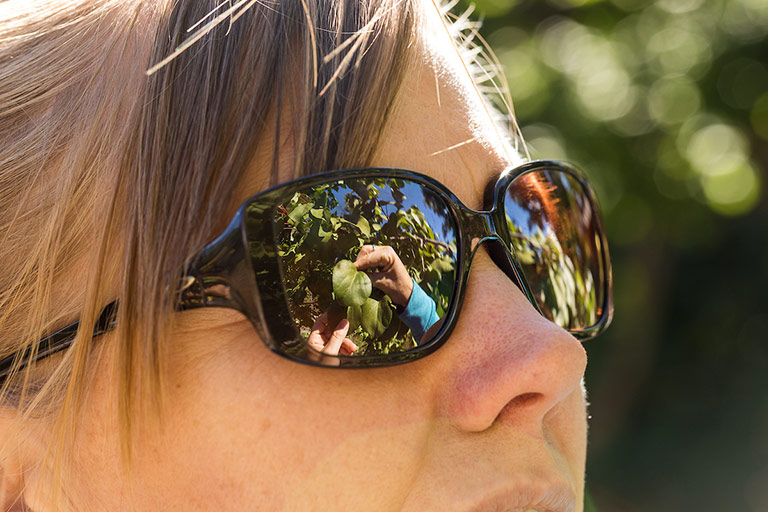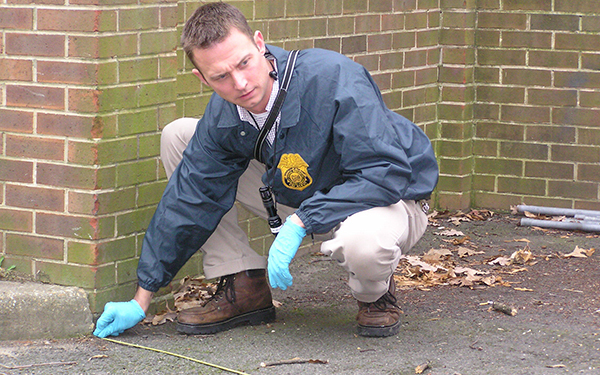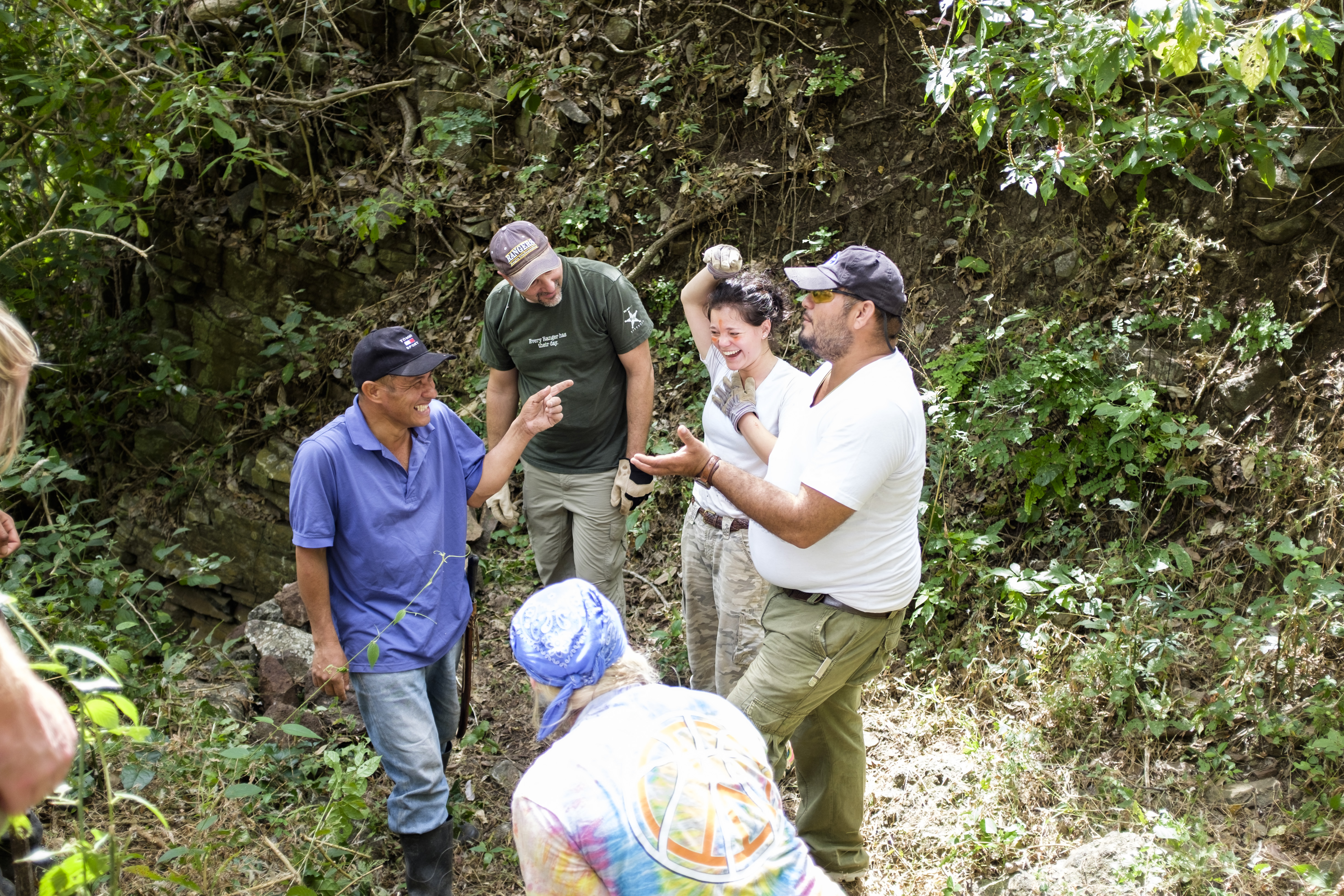Experiential Learning for Adult and Online Students
Experiential learning is, in its essence, learning through doing. Instead of knowledge being transmitted directly through readings or lectures, experiential learning involves the your active and ongoing construction of knowledge in a fitting engagement with your environment. As an experiential learner at Regis University, we challenge you to construct and continually refine appropriate concepts while engaging in an educational experience that both develops skills that employers desire and satisfies learning outcomes for your academic program. Experiential learning provides a bridge between the knowledge you gain in the classroom and the typical workday routines – and more specialized activities – that employers expect their best workers to carry out. At Regis, we offer different course options that provide different kinds of experiential learning.
Benefits of Experiential Learning
Experiential learning provides for the refinement of knowledge through interaction within an appropriate environment, ideally under the supervision of those who have already gained expert-level practical knowledge. Experiential learning is especially appropriate for students who will be returning to work after their studies, either seeking career advancement or a new career within a given field.
In conjunction with our course offerings, you'll have the opportunity to earn academic credit for participating in service learning, engaging in research of public interest, coaching or mentoring others in their community, interning at an office or workplace related to your academic interests, producing artwork, orchestrating an exhibit or procuring resources for community organizations.
The faculty in our online and accelerated programs is especially keen on providing experiential learning opportunities at the end of your academic program, whether you're enrolled in a master’s or bachelor’s level program. Many students typically end their undergraduate or graduate work with a capstone project. Besides a traditional academic thesis, experiential options for completing the Capstone include, but are not limited to, internships, applied projects, literary projects and service projects.
What Our Students Say:

The time spent earning my master's in Religious Studies has allowed me to greatly improve my academic skills in both writing and research. Through earning my degree, I have gained a greater appreciation of how religion can positively impact society, especially in regards to peoples' mental, physical and spiritual well-being. My internship experience was also beneficial in that it provided me with practical experience for today's job market.
-David McMillan

When learning something new, hands-on, or experiential learning, has always been my preferred approach. For me, the experience itself seems to help commit the new material to memory faster than if someone were to verbalize the information and/or instructions. The same can be said for this course's experiential learning, in that the active role at an internship helped me to associate the theories and information learned through Regis with real-life experience, synthesizing once two-dimensional constructs into meaningful and tangible experiences.
-Ashley Sterling
Experiential Capstone Options
In an experiential capstone, students use internship or service-learning experiences every week to discuss and glean insights with other students. The process is facilitated through a bi-weekly reflection journal, narrating the significance students found at the worksite. At the end of the course, participants share the skills they cultivated through the experience in a presentation. It is the student’s responsibility to find an internship, though faculty and Regis’s Academic Internship Office are available to help students explore their options.

Internships
During an internship, you'll work directly with an employer to enhance the your expertise and learning, thus multiplying your opportunities for employment after graduation. Previous Regis internships have included an undergraduate majoring in Criminology completed a 240-hour internship with the Jefferson County Sheriffs’ Department, during which she investigated cold-case felonies, including cases of homicide, sex crimes and aggravated assault. Other interns have worked in coroner’s offices, and still others have worked with victims’ assistance units, helping victims – including children – recover from violent crimes. These are only a few examples of internship possibilities. Both 3- and 6-credit internship courses are available.

Applied Project
This capstone option is ideal for any student who wishes to produce something for their employer. You may wish to develop a new process at work, create a new organizational system, develop a curriculum or write a training manual. The applied project capstone option enables you to draw on your academic knowledge to complete any of these tasks (or others) while earning those last few credits for graduation. An example applied project was completed by one of our MA students, an Army Chaplain who wrote a new ethical decision-making manual for the Army, one that he could teach to his own student-soldiers in his ethics courses.

Literary Project
Pursuing a degree in Creative Writing or Literature? It would make sense for the crowning experience of youe degree program to be the writing of a novella, a short story collection, a cycle of poems or a play. You'll receive academic credit for creative work that is intimately tied to your academic discipline. Using this option, you can spend two eight-week terms engaging in research on genre, historical context, style and writing technique before creating a literary work you can be professionally proud of.

Service Project
Students who select this capstone option design and execute a project that serves an otherwise under-served community. You might work directly with community members, perhaps acting as a representative for Regis University. Your project will have to be carefully researched and documented, ensuring that the under-served community’s needs really are being met and that the project is carried out in a manner consistent with respect for members of this community.
Course Options
Graduate students interested in applied projects, literary projects, service projects or a traditional academic thesis will take the 6-credit MAPC 693/MSCR 693: Graduate Capstone course. Those interested in internships or service-learning experiences will take MAPC 695/MSCR 695: Experiential Capstone, also a 6-credit course. Undergraduate students interested in applied projects, literary projects, service projects or a traditional academic thesis can take CAP 494. Alternatively, undergraduates interested in internships or service-learning can take CAP 498, which is co-listed with MAPC 695/MSCR 695. All courses listed here enable students to compare and contrast their capstone experiences with each other, gaining the benefits of communal reflection on practice and opportunities for structured feedback from their peers.
Want to Learn More?
If you are already a Regis student, please speak to your academic advisor about the options available to you. If you are not yet a Regis student, contact Admissions for further information.
